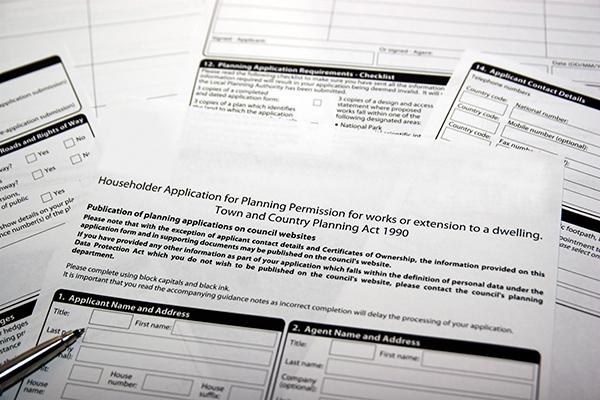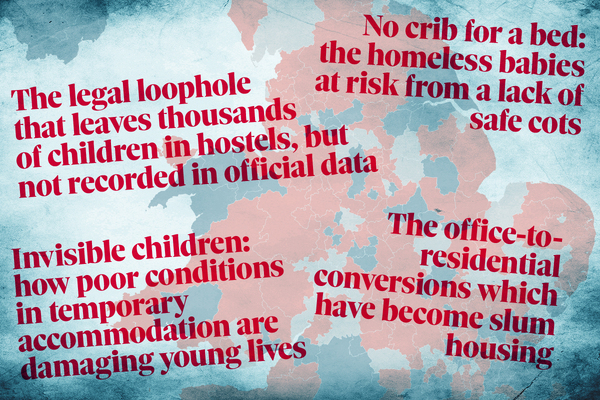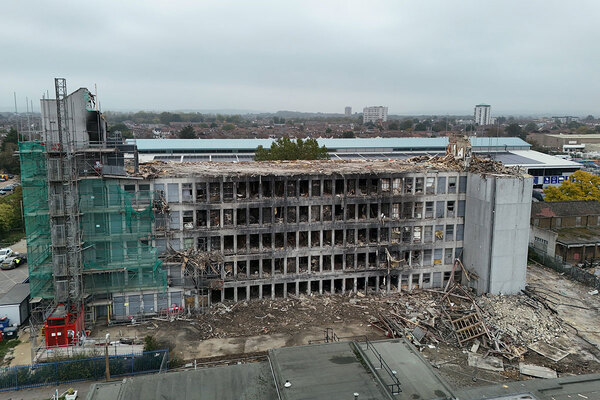You are viewing 1 of your 1 free articles
Government announces viability assessment changes amid planning shake-up
Viability assessment rules will be amended in an attempt to clamp down on developers dodging affordable housing commitments, amid a flurry of proposed changes to planning rules unveiled today.
The government is proposing restricting use of viability testing to developments which do not comply with councils’ local plan policies.
In theory, that would prevent developers from gaining planning permission with an agreed level of affordable housing and subsequently using viability claims to negotiate down the proportion of sub-market homes.
Ministers also want to make viability assessments publicly available.
And under new rules, developers would be required to take the existing use value of the land for the scheme, plus a landowner premium based on how much they would like sell the land for, as the starting point when assessing development costs.
The proposals form part of extensive draft amendments to the National Planning Policy Framework (NPPF) published today, the first major shake-up of government planning policy since it was introduced in 2012.
Other new policies include reforming the section 106 and Community Infrastructure Levy systems of developer contributions to make the more standardised.
The draft NPPF also brings forward a Housing White Paper proposal to subject councils to Housing Delivery Tests.
Viability assessments allow developers to limit their contributions to infrastructure and affordable housing by demonstrating that doing so would limit their profits to below 20%.
They are not usually made public, leading the practice to be criticised for lacking transparency. However, a number of councils have started demanding that the documents are published.
Research by housing charity Shelter has previously found that thousands 2,500 affordable homes were cut from developments after viability testing across 11 council areas in 2015/16.
At-a-glance: the proposed planning changes
These are the key changes to the National Planning Policy Framework outlined on 5 March 2018:
- A shake-up of viability assessments making it harder for developers to negotiate down affordable housing contributions
- Reform of Section 106 and the Community Infrastructure Levy to make the systems simpler and more standardised
- Introduction of Housing Delivery Targets forcing councils to oversee delivery of new homes, first proposed in the Housing White Paper
- Stronger protections for the green belt
Speaking after Theresa May at an event this morning, housing secretary Sajid Javid said:
"Unfortunately we all know instances where developers make these promises and they later turn around and claim that they can no longer afford them. That is totally unacceptable. It cheats communities of much needed housing and infrastructure and it gives new development a bad name, which is why we’re addressing this issue head-on in our consultations with proposals for reform to the system.
"These include a new approach for developer contributions so that everyone is clear about what affordable housing and infrastructure will underpin new development, more standardised viability assessments and greater transparency. Leaving developers in no doubt as to what is expected form them in no doubt that councils will hold them to their commitments and leaving communities in no doubt that their needs will be met."
Elsewhere, the proposals call for developers and councils to reach agreements on affordable housing and other obligations before an application has been submitted in order to speed up the planning process.
And it says local planning policies “should expect at least 10% of the homes to be available for affordable home ownership” on larger schemes.
A consultation on the updated NPPF will run for eight weeks, with the final version set to be published in summer. Many of the changes it introduces were first unveiled in the Housing White Paper last year.
It will be accompanied by a consultation on reforming developer contributions to affordable housing.













